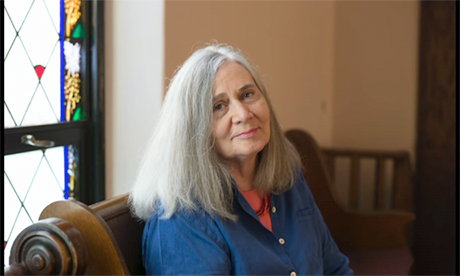A Pulitzer Prize-winning American novelist known for her compelling Christian characters has urged Christians to engage fearlessly and generously with a world “enthralled by contentiousness.”
“There’s something very, very wrong when so many people who claim to be religious act as if they have to hide out, as if their understanding of things couldn’t support daylight,” Marilynne Robinson said Friday during the Trinity Forum livestream event, “Story, Culture, & the Common Good.”
The event was the latest entry in the Trinity Forum’s schedule of online events aimed at creating virtual spaces for engaging life’s deep questions in a faith context during the pandemic.
Referencing the many times when she’s been asked whether she was afraid to write about Christianity for a broader, secular audience, the novelist said, “I’ve had no problem with that, zero!”
“I think one of the strangest things that happens is that many people who consider themselves Christians consider themselves strangers in the world, in the sense that if people found out what they really thought or believed, they’d be ridiculed,” she added.
Robinson’s books make no attempt to disguise her love for and fluency with theology, which shows itself in the deeply religious lives of many of her characters, such as Gilead’sReverend John Ames.
Gilead won the 2005 Pulitzer Prize for fiction. Her forthcoming novel, Jack, continues with the story of Ames’ prodigal son, John Ames Broughton.
Unreasonable suspicions of interactions with the broader world, Robinson argued Friday, cause Christians to “restrict their own work, their own imaginations, because they’re afraid.”
Many people who consider themselves Christians consider themselves strangers in the world, in the sense that if people found out what they really thought or believed, they’d be ridiculed.
Holding up her own career as a test of what happens when a Christian artist resists those fears, she said, “I think I have been as genuinely and fairly read and reviewed as any writer that I know.”
Robinson also weighed in on the contours of a current cultural moment marked by the pandemic and a nationwide reckoning on racial injustice.
“I’ve never seen such crazy times in my life, but I do think the balance is probably on the side of the restoration of American democracy,” Robinson said, adding that democracy is “the only way we can possibly honor the fact of the brilliance, the importance of every human life.”
Conceding that “the government itself seems to be in pretty bad shape,” the author said she sees signs in movements to combat racial injustice that the “populace seems to be in pretty good shape” and she believes “we have a good possibility of having it all work out.”
“We’re just living, in a kind of condensed form, human life … people have always had to deal with pandemics, plagues… people have always dealt with unrest,” she said. “We’re not habituated to it because we’ve been very fortunate, but that doesn’t mean we’re exempt from what people have lived through time out of mind.”
Fear and a “tendency to condescend horribly to one another” have been destructive forces at a time that instead calls for a “discipline of generosity,” the author said.
Humans have an “unlimited capacity for generosity,” she explained. “That means that in any work you do at all – that certainly means any artistic work you do – we have that capacity to create society around us by acts of generosity towards the society, and of course the repayment of that sort of choice is very clear… you make the society you want to live in.”
History, Robinson argued, could be providing models for moving society forward.
Too often, however, people are approaching history with either uncritical nostalgia – “that’s when people were right-minded” – or blanket condescension – those who “existed with evil” must have been evil themselves. Continue reading
- The analysis or comments in this article do not necessarily reflect the view of CathNews.
News category: Analysis and Comment.




